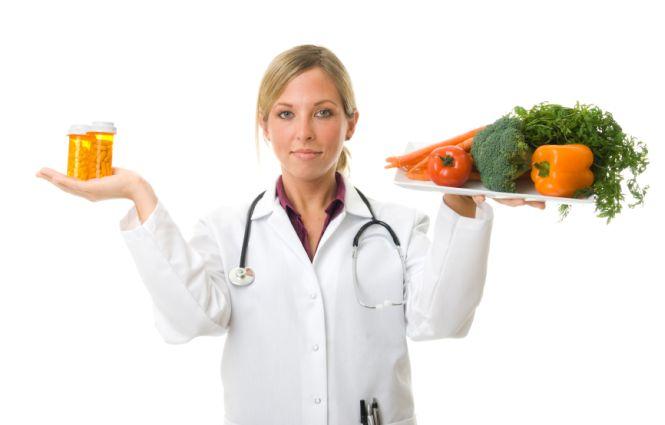Diet in hepatitis A guidelines:
Diet recommended for convalescents after viral hepatitis should be used for an average time of 6 weeks. After this period, if the results of biochemical tests are normal, your doctor may allow a return to a normal diet. Hepatitis A - induced through the intestinal - may proceed with or without jaundice. Disease is most common among children and adolescents.
|
|
|
The main organ that controls the metabolic processes in the body is the liver. Here we follow the most important transformation of nutrients, such as synthesis of specific proteins, glycogen synthesis, metabolism and storage of iron, copper, some trace elements, vitamin A, D and K. In addition liver, secreting bile, contributes to the digestion and absorption of fats and soluble vitamins in them. The source of infection may be a sick person as well as clinically healthy carrier of the virus. Huge role in preventing the disease plays proper prevention. It should first of all taking care of personal hygiene and hygienic storage and preparation of meals, especially in the colonies and youth camps. In viral hepatitis, there are three periods: I - incubation (2-6 weeks), II - with clinical symptoms, and III - recovery (about 3 weeks). Nutrition in liver disease is highly variable and depends primarily on the degree of liver function. In the acute phase (II) for hepatitis diet doctor decides after controlling the current state of the patient. Must take into account not only the capacity of the liver, but also the existence of possible food shortages and malnutrition. The problem may also be occurring very frequently in patients with anorexia. Therefore, recommendations in this period of sickness may change frequently. During the recovery the administration of the protein in large quantities is very important because of the need to fill gaps in the tissue of this component and the acceleration of regeneration processes.
The main principles of the diet for convalescents after hepatitis A
? A high protein diet with limited fat is designed to provide 2400-2800 kcal to people who have a specific weight, or even 3000 calories - if as a result of illness appeared with underweight malnutrition. Protein should provide 15-20% of energy. To achieve this value, the diet should contain an average 1.3-1.5 grams of protein per kilogram of body weight.
? Meals should be varied as much as possible. A menu should be adapted to individual tastes and dietary habits of convalescent, especially if he is suffering from lack of appetite.
? Hot food must be administered frequently, preferably five times a day, but in small amounts.
? Recommended cooking methods includes boiling in water, steaming, roasting and stewing in the foil without fat added. Do not eat fried foods.
? Do not use fat for cooking, allowed amount (as directed) may be added raw to ready-made meals.
? When preparing meals you choose not to use roux, cream and fatty meat broths.
? The diet should exclude food hard to digest, inflating as well as hot spices and stimulants (alcohol and strong coffee). You can drink weak tea and cocoa, in limited quantities,.
? From bakery goods : white bread, especially wheat, wheat flour, pasta, a "thread", semolina, corn, barley flakes, oat, rice, sago (a type of meal, starch) are recommended. Avoid whole-wheat bread, rye flour, millet, buckwheat and other thick groats.
? You can drink milk with reduced fat, kefir, cheese, low fat cottage cheese, cream containing less than 9% fat. Not recommended are: fat milk, too sour milk products, processed cheese, cottage cheese fat, cheese, cream with a fat content exceeding 9%.
? From meat choose lean species like chicken, turkey, veal and beef. The same situation in cold cuts - sirloin, lean ham, lean poultry meats are recommended. The diet should exclude so-called red meat so pork, beef, duck, goose and sausages, pates, cold meats and pickled giblets.
? Lean fish such as cod are recommended. Do not eat fatty, pickled and canned fish.
? Among the fruits and vegetables especially suitable are tomatoes, carrots, celery, pumpkin, berries and citrus. Cross vegetables (cabbage, Brussels sprouts, cauliflower), legumes, turnips, radish, onion, garlic, leeks, rhubarb should be rather avoided.
? It is recommended to consume cooked and mashed potatoes instead of fried and baked with added fat.
? In limited quantities, you can use vegetable oils and fat spreads. Instead, you must give up lard, bacon, butter, salt and margarine used for frying.











